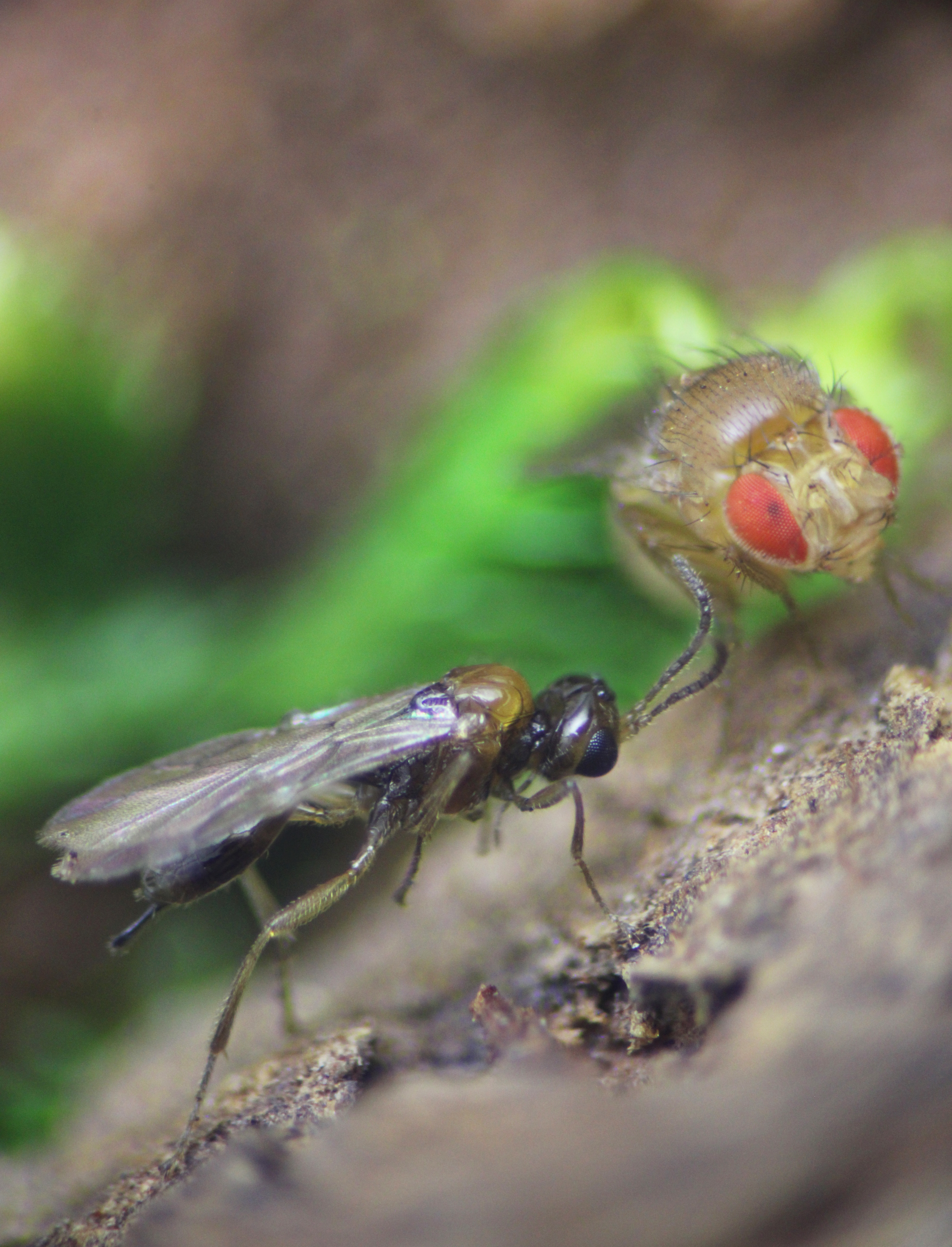A new species of wasp has been discovered parasitizing adult fruit flies – the first of its kind ever documented. Parasitoid wasps’ life cycles can get pretty gruesome (at least from the perspective of their host), with species that use the bodies of other insects as a cozy home for their eggs often eating or breaking apart their hosts as they hatch.
Typically, these wasps will try to use their host insects’ immature stages as their host because they are more vulnerable to their advances. Adult stages can be used as hosts, but this is less common and had never been seen before in the adult fruit fly of the Drosophila genus.
“I would say maybe the one thing that would explain why it’s gone undiscovered for so long is because nobody is expecting it,” the study’s lead author Logan Moore, of Mississippi State University, told Live Science. “No parasitoid wasp has been known to infect the adult stage of not just Drosophila, but of flies in general.”

Syntretus perlmani and Drosophila melanogaster, the parasite and the host.
Image Credit: Matthew Ballinger
Discovering a new species was a chance encounter that occurred as the researchers were looking for parasites in flies caught in their own backyards. While the team was screening more than 6,000 flies, they made the very unusual discovery of a parasitic wasp hiding under the abdomen of an adult fly of the species Drosophila affinis.
The wasp wasn’t hard to spot as “the wasp larva and teratocytes grow large enough to swell the abdomen and obstruct the view of the host’s brightly pigmented testes” the authors wrote in the paper.
When they sequenced the DNA of the parasite and looked at its physical appearance, they found that the new species was a parasitoid wasp of the genus Syntretus, in the subfamily Euphorinae. This group is only previously known to be parasites of bees or wasp adults, while other species turn spiders into their slaves. This represents the first case of parasitism between an adult fly and a parasitoid wasp.
“All known parasitoid wasps of flies attack and develop inside immature life stages,” said study co-author Associate Professor Matthew Ballinge in a statement, “and despite 200 years of research on parasitoid wasps of Drosophila and other flies, we have never come across a species that attacks the adult stage, until now.”
The team named the new species Syntretus perlmani, and carefully studied its life cycle. Female S. perlmani use their ovipositors to deposit their eggs in the fruit fly’s abdomen, and 18 days later a larva will burst out of the side of the fly, leaving its host to die.
“It will effectively emerge out of the side of the fly,” said Moore to Live Science. “And just to add an additional layer of horror, the fly will normally remain alive for several hours after that.”
The team found that S. perlmani also uses Drosophila melanogaster as a host, one of the most studied organisms in biology. Drosophilia has over 1,500 species which could also play host to this new species, or others that have yet to be officially named. The team says that S. perlmani is found in at least the Eastern side of the US, but suggests it could be more widespread. It also opens up avenues for insect biodiversity as more species could be parasitizing adult flies that have yet to be discovered.
“We’re excited to learn more about the new species, and we hope other researchers will begin their own projects to better understand its infection biology, ecology and evolution in the coming years,” Ballinger finished.
The paper is published in the journal Nature.
Source Link: New Parasitic Wasp Species Is The First Known To Lay Eggs In Adult Flies